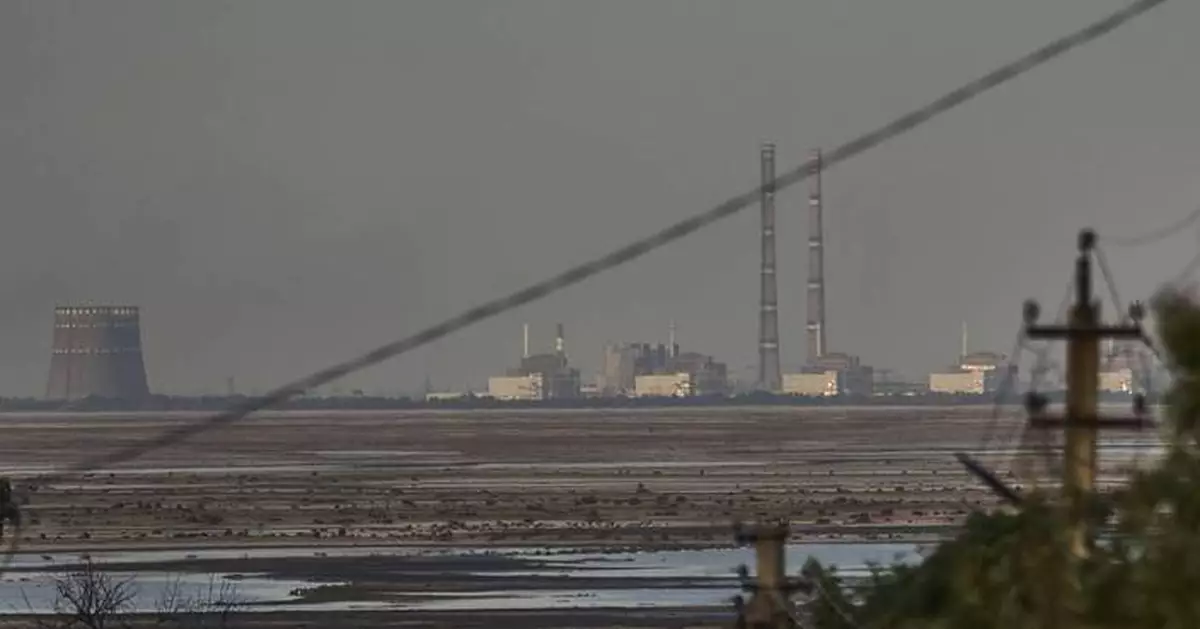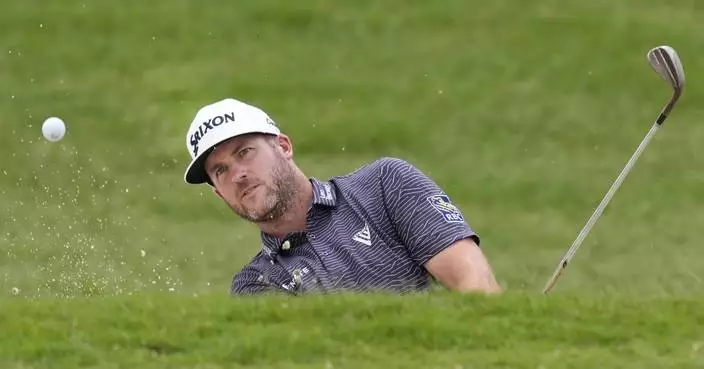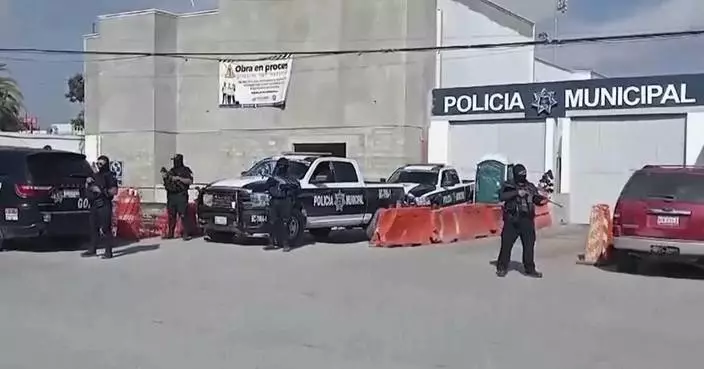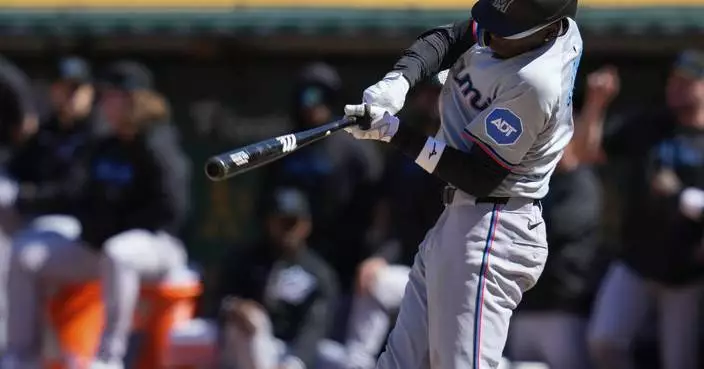KYIV, Ukraine (AP) — The head of the U.N.’s atomic watchdog agency on Sunday condemned a drone strike on one of six nuclear reactors at the Russian-controlled Zaporizhzhia Nuclear Power Plant in Ukraine, saying such attacks “significantly increase the risk of a major nuclear accident."
In a statement on the social media platform X, Rafael Mariano Grossi confirmed at least three direct hits against the ZNPP main reactor containment structures took place. “This cannot happen,” he said.
Russia blamed Ukraine for the attack, but the U.N.'s International Atomic Energy Agency didn't attribute blame. Kyiv officials made no immediate comment.
He said it was the first such attack since November 2022, when he set out five basic principles to avoid a serious nuclear accident with radiological consequences.
Officials at the plant said the site was attacked Sunday by Ukrainian military drones, including a strike on the dome of the plant’s sixth power unit.
According to the plant authorities, there was no critical damage or casualties and radiation levels at the plant were normal after the strikes. Later on Sunday, however, Russian state-owned nuclear agency Rosatom said that three people were wounded in the “unprecedented series of drone attacks,” specifically when a drone hit an area close to the site’s canteen.
The International Atomic Energy Agency said Sunday that its experts had been informed of the drone strike and that “such detonation is consistent with IAEA observations.”
In a separate statement, the IAEA confirmed physical impact of drone attacks at the plant, including at one of its six reactors. One casualty was reported, it said.
"Damage at unit 6 has not compromised nuclear safety, but this is a serious incident with potential to undermine integrity of the reactor’s containment system” it added.
The power plant has been caught in the crossfire since Moscow sent troops into Ukraine in 2022 and seized the facility shortly after. The IAEA has repeatedly expressed alarm about the nuclear power plant, Europe’s largest, amid fears of a potential nuclear catastrophe. Both Ukraine and Russia have regularly accused the other of attacking the plant, which is still close to the front lines.
The plant’s six reactors have been shut down for months, but it still needs power and qualified staff to operate crucial cooling systems and other safety features.
Also on Sunday, three people were killed when their house was hit by a Russian projectile in the front-line town of Huliaipole in Ukraine’s partly occupied southeastern Zaporizhzhia region, regional Gov. Ivan Fedorov said. Later on Sunday, two people were wounded in another shelling of Huliaipole.
Separately, three people were wounded in Russian shelling in Ukraine’s northeast Kharkiv region, according to regional Gov. Oleh Syniehubov.
In Russia, a girl died and four other people were wounded when the debris of a downed Ukrainian drone fell on a car carrying a family of six people in Russia’s Belgorod region bordering Ukraine, regional Gov. Vyacheslav Gladkov said.
This story has been corrected to delete reference in the lead to the drone attack being launched by Ukraine. Russian officials have claimed that, but Ukraine did not comment.
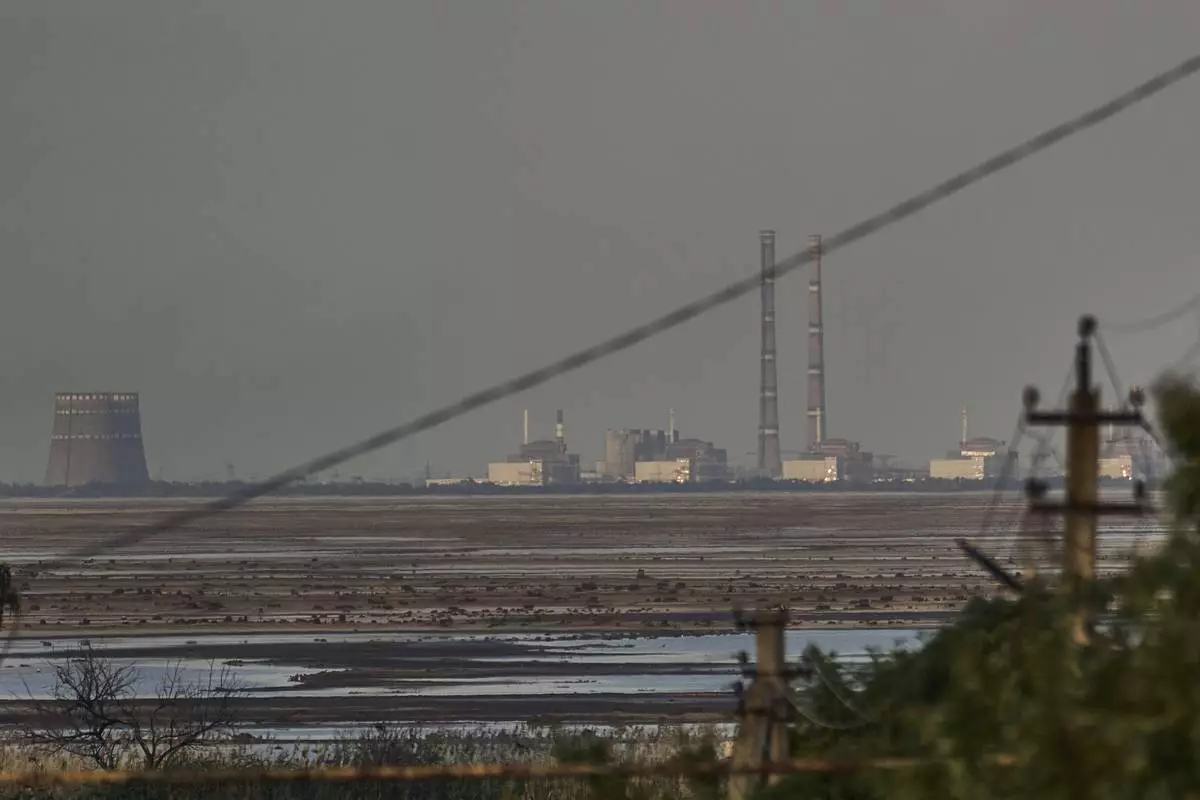
FILE - The Zaporizhzhia nuclear power plant, Europe's largest, is seen in the background of the shallow Kakhovka Reservoir after the dam collapse, in Energodar, Russian-occupied Ukraine, Tuesday, June 27, 2023. Officials at the Russian-controlled Zaporizhzhia Nuclear Power Plant said that the site was attacked Sunday April 7, 2024, by Ukrainian military drones, including a strike on the dome of the plant’s sixth power unit. (AP Photo/Libkos, File)
CONCORD, N.H. (AP) — One of the jurors who awarded a New Hampshire man $38 million in a landmark lawsuit over abuse at the state’s youth detention center says the state is misinterpreting the verdict by capping the payment at $475,000.
Jurors on Friday awarded $18 million in compensatory damages and $20 million in enhanced damages to David Meehan, who alleged that the state’s negligence allowed him to be repeatedly raped, beaten and held in solitary confinement as a teenager at the Youth Development Center in Manchester. But the attorney general’s office said the award would be reduced under a state law that allows claimants against the state to recover a maximum of $475,000 per “incident.”
Jurors were not told of the cap. When asked on a verdict form how many incidents they found Meehan had proven, they wrote “one.” The completed form does not indicate whether they found a single instance of abuse or grouped all of Meehan’s allegations together, but one of the jurors emailed Meehan’s attorney on Sunday to explain their reasoning.
“We wrote on our verdict form that there was 1 incident/injury, being complex PTSD, from the result of 100+ injuries (Sexual, Physical, emotional abuse),” the juror wrote, according to court documents filed Sunday by Meehan's attorneys. “We were never informed of a cap being placed per incident of abuse and that is wrong how the question was worded to us.
“The state is making their own interpretation of the ruling that we made, and that is not right for them to assume our position,” the juror wrote. “David should be entitled to what we awarded him, which was $38 million.”
Meehan’s attorneys have asked the judge in the case to hold an emergency hearing on the matter Monday and have brought in former state Supreme Court Justice Gary Hicks to help make their case.
Attorneys for the state had not responded to the request for a hearing by Sunday evening, and Michael Garrity, spokesman for the attorney general’s office, declined to comment other than pointing to Friday’s statement about the cap.
In their motion, Meehan’s attorneys said the juror's email statement and others sent by the jury foreperson confirm that jurors misunderstood the verdict form. The attorneys said that the finding of only one proven “incident” is “conclusively against the weight of the evidence” and logically inconsistent with the damages awarded.
In such circumstances, the court “not only has broad discretion, but is in fact duty-bound to take corrective action,” they wrote. The attorneys cited past cases in which judges questioned juries and then directed them to reconsider their verdicts.
The jury foreperson emailed one of Meehan’s attorneys Rus Rilee, within hours of the verdict, saying, “I’m absolutely devastated.” The next morning, the foreperson sent a message to attorney David Vicinanzo saying, “My guilt kept me awake for the better part of the night.”
“I was literally sickened and brought to tears in fear of the mistake we made. I still am,” the juror wrote.
Meehan, 42, went to police in 2017 and sued the state three years later. Since then, 11 former state workers have been arrested and more than 1,100 other former residents of the Youth Development Center have filed lawsuits alleging physical, sexual and emotional abuse spanning six decades.
Meehan’s lawsuit was the first to go to trial. Over the course of four weeks, Meehan’s attorneys contended that the state encouraged a culture of abuse marked by pervasive brutality,corruption and a code of silence.
The state argued it was not liable for the conduct of rogue employees and that Meehan waited too long to sue. In cross-examining Meehan, attorneys for the state portrayed him as a violent child who caused trouble at the youth center — and as a delusional adult who exaggerates or lies to get money.
The case highlighted an unusual dynamic in which the attorney general’s office is both defending the state against the civil lawsuits and prosecuting suspected perpetrators in the criminal cases.
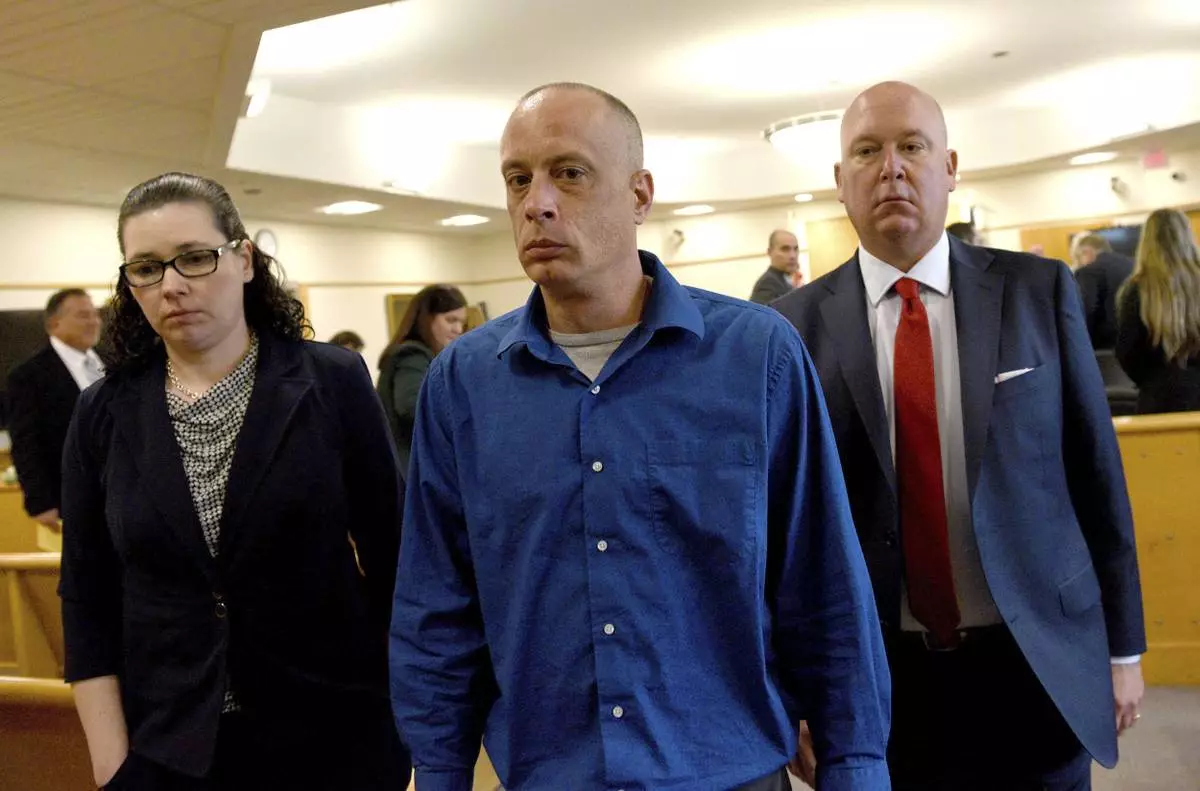
Plaintiff David Meehan, center, leaves the courtroom with his attorney Rus Rilee, right, and victim specialist Joelle Wiggin during Meehan's trial at Rockingham Superior Court in Brentwood, N.H., April 10, 2024. The jury found the state liable for abuse at its youth detention center and awarded the sum to Meehan, a former resident who says he was beaten and raped as a teen. (David Lane/Pool Photo via AP)



